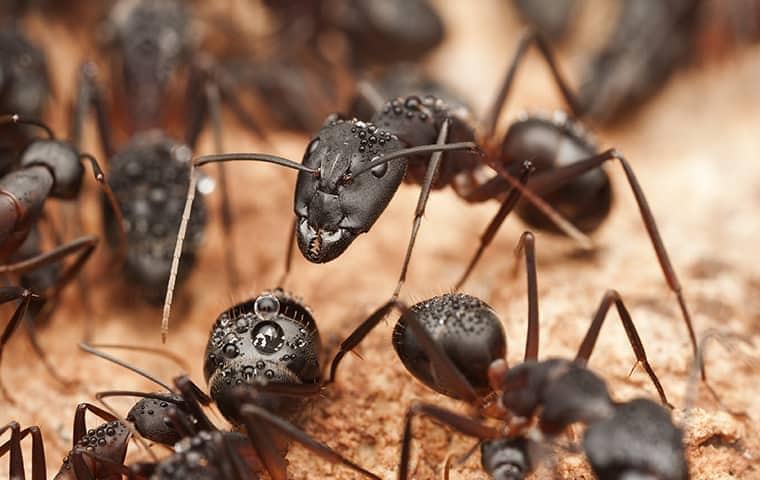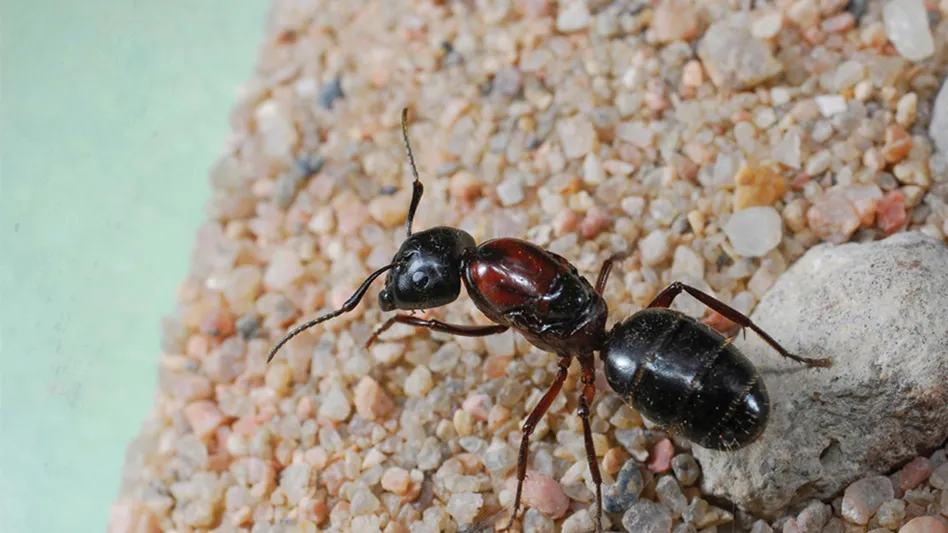Comprehensive Termite Control: Safeguard Your Residential Property with Professional Services
Comprehensive Termite Control: Safeguard Your Residential Property with Professional Services
Blog Article
Ecological Impact of Parasite Control: Balancing Effectiveness With Sustainability
The environmental impact of insect control is a critical problem that needs a fragile equilibrium between attaining efficiency in taking care of parasites and making certain sustainability of our communities. From the use of harmful chemicals that seep into our soil and water to the unplanned consequences on non-target varieties, the consequences of standard parasite control techniques are far-ranging.
Hazardous Chemicals in Parasite Control
The usage of dangerous chemicals in bug control presents significant environmental and wellness risks that require careful consideration and mitigation strategies. Pesticides, pesticides, and herbicides are commonly utilized to get rid of pests, yet their extensive application can result in unplanned consequences. These chemicals can contaminate soil, water sources, and the air, affecting not only the targeted insects but also valuable insects, wildlife, and humans.

To deal with these threats, incorporated parasite management (IPM) techniques are being promoted as a more sustainable choice. IPM includes a mix of methods such as organic control, habitat manipulation, and the targeted use of chemicals as a last option (ant control thomaville nc). By embracing a holistic strategy to pest control, we can minimize the ecological and health and wellness effects connected with unsafe chemicals while properly managing pest populations
Effect On Non-Target Species
Considering the unplanned repercussions of parasite control approaches, the effect on non-target varieties is an essential aspect that needs complete assessment. While bug control procedures intend to target details pests, other microorganisms in the environment may be inadvertently influenced. Non-target species, including beneficial bugs, birds, animals, and even plants, can endure straight or indirect harm from pesticide applications or organic control methods.
Pesticides developed to deal with a specific bug parasite may harm pollinators like or natural predators such as ladybugs. Biological control representatives, if not species-specific, can present risks to unintended targets, interfering with the eco-friendly equilibrium.
To reduce the impact on non-target varieties, integrated pest administration (IPM) strategies that emphasize a holistic technique to pest control are recommended. These methods prioritize making use of eco-friendly methods, reducing injury to useful organisms while efficiently handling pest populaces. Carrying out detailed danger analyses and monitoring the end results of pest control efforts are vital action in securing non-target species and promoting overall environment health and wellness.
Soil and Water Contamination
Unexpected ecological consequences of pest control methods prolong past influencing non-target species, with considerable effects for soil and water contamination - ant control services. Pesticides, herbicides, and chemical fertilizers used in bug control can leach right into the soil and infect groundwater, posturing a danger to both terrestrial and aquatic ecosystems.
Water contamination is another critical issue connected with bug control techniques. Drainage from farming areas treated with pesticides can bring these chemicals into neighboring water bodies, affecting aquatic microorganisms and water high quality. Impurities in water sources can have far-ranging repercussions, impacting not just marine life but also human wellness with the intake of contaminated water or water organisms. To mitigate soil and water contamination from insect control tasks, incorporated pest monitoring approaches that prioritize sustainability and minimize chemical inputs are critical.
Air Contamination From Pesticide Use
Direct exposure to airborne chemicals during agricultural applications poses a significant problem for air pollution control measures. Furthermore, pesticide drift, where pesticides are carried by the wind to unexpected locations, can lead to the contamination of nearby communities and water bodies.

Strategies for Lasting Parasite Control
In the world of farming techniques, carrying out sustainable pest control methods is paramount for preserving environmental equilibrium and safeguarding crop yields. Lasting parasite control emphasizes using eco-friendly methods to manage bug populaces successfully while minimizing harm to non-target microorganisms and communities. Integrated Pest Monitoring (IPM) is a widely embraced strategy that incorporates biological, social, physical, and chemical control techniques to basics attain lasting pest management options.
One key method in sustainable parasite control is advertising biodiversity within agroecosystems. By enhancing natural enemies of insects, such as killers and parasitoids, farmers can decrease the need for synthetic pesticides. Plant rotation and diversification are also efficient strategies to interrupt pest life process and develop much less favorable problems for parasites to grow. In addition, utilizing pest-resistant crop ranges and using methods like trap cropping can assist reduce insect stress without counting heavily on chemical treatments. Ultimately, by integrating these sustainable parasite control approaches, farmers can achieve an equilibrium between pest administration effectiveness and environmental stewardship.
Verdict
In verdict, the environmental effect of insect control techniques must be very carefully taken into consideration to balance performance with sustainability. Unsafe chemicals used in bug control can result in dirt and water contamination, air contamination, and damage non-target species - termite control. It is critical to execute sustainable insect control approaches to reduce these adverse impacts on the environment and advertise a healthier ecological community for future generations
By adopting an alternative method to pest control, we can decrease the environmental and health and wellness influences associated with dangerous chemicals while successfully handling pest populaces.

To minimize the air pollution created by pesticide use, it is essential to embrace integrated pest management techniques that prioritize the usage of non-chemical insect control methods, such as plant rotation, natural killers, and immune crop varieties. Sustainable pest control stresses the use of environmentally friendly approaches to handle pest populaces successfully while decreasing injury to non-target organisms and ecological communities. Integrated Pest Monitoring (IPM) is a widely taken on approach that integrates biological, cultural, physical, and chemical control techniques to accomplish long-lasting bug administration solutions.
Report this page